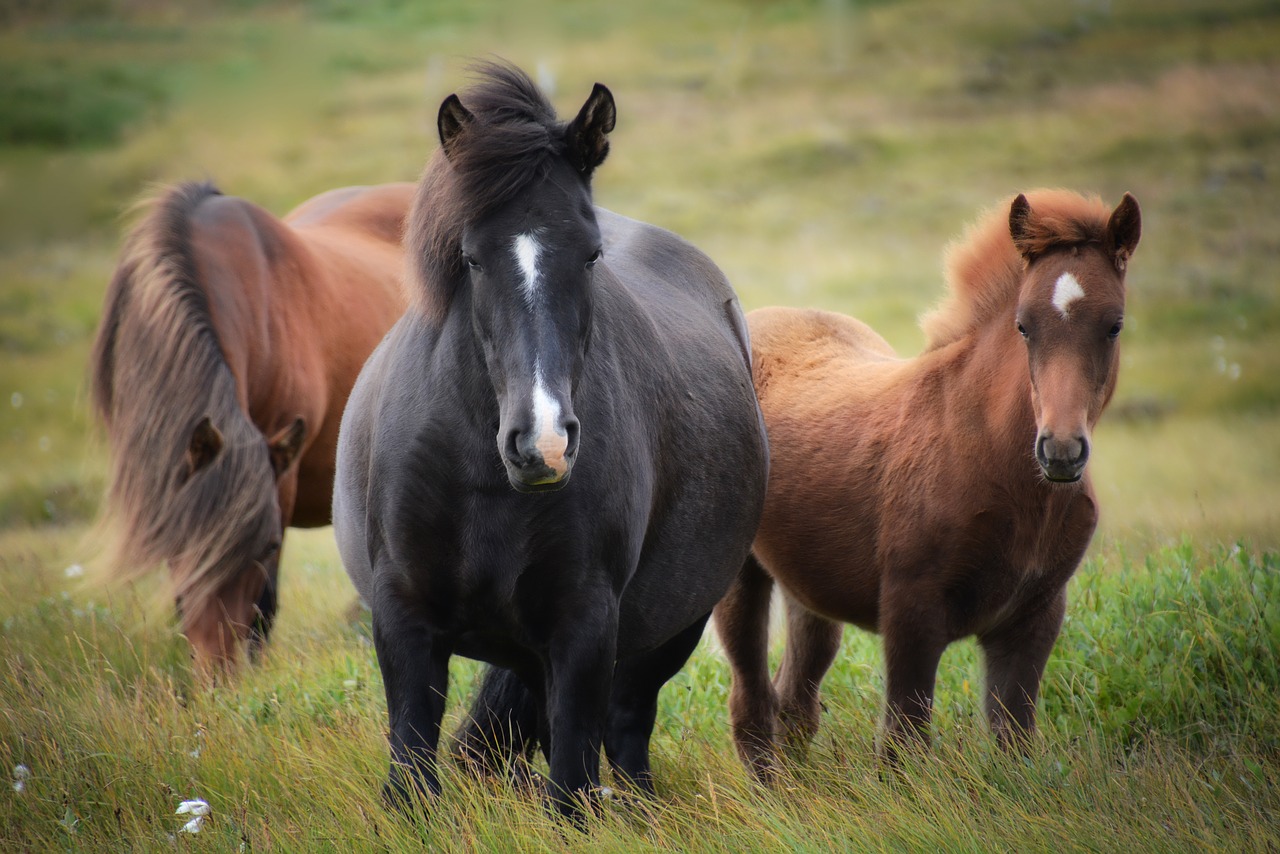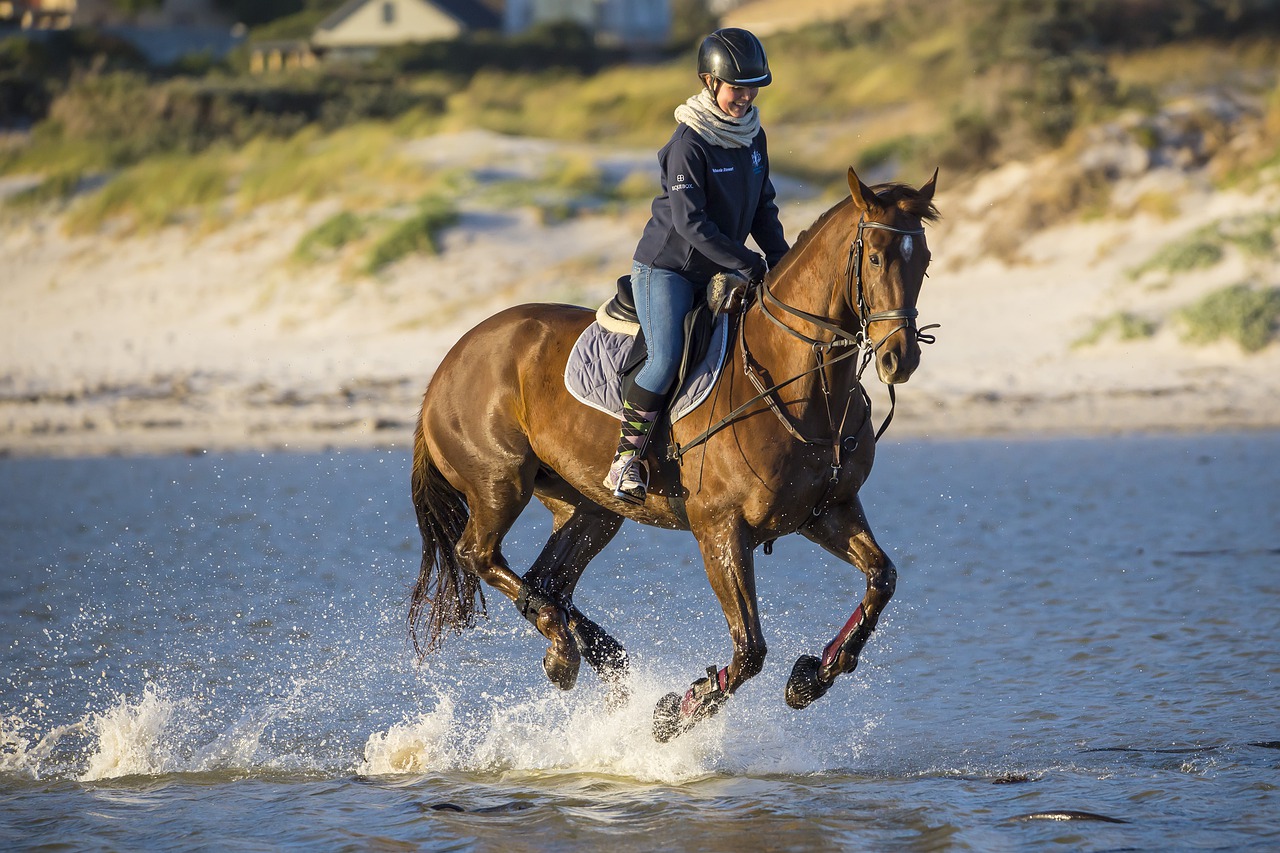Asking the question “how long do horses live for?” may result in a variation in answers. Most breeds of horses will live for at least 25 to 30 years, though there may be some factors that result in certain breeds living longer or shorter lives than others.
Below, we have provided a guide on the life expectancy of horses, covering a range of breeds from Drafts and Clydesdales, to Paints, Icelandics, and Warmbloods, as well as covering information on the reasons some horses may live longer. We have also included some advice on the average horse ageing method (being able to tell how old your horse is).
The Average Life Expectancy of a Horse
The life expectancy of a horse may vary for a number of different reasons, most of which are related to the animal’s environment, the care provided, and the breed. Technological advances and breakthroughs in veterinary medicine mean that horses and ponies can now live for far longer than they might have done otherwise, with many reaching great ages in horse years. This is even comparable to a fairly long life in human years.
How Long Do Horses Live for: Horse Years to Human Years
Naturally, horses and humans age at different rates, and an equine year is calculated differently to a standard human year. The calculation is not straightforward, either, as the age of the animal must be taken into consideration.
The first two horse years are considered equal to 6.5 human years. As such, once the horse has reached 2 years of age, this will be the equivalent to 13 years in human terms. From 2 to 3 years old, a horse year will be the equivalent of 5 human years.
After the 3 year mark has passed, the rate will slow down again. However, it is still faster than you would expect a human to age, with around 2.5 horse years passing for every human year.
This rate will then be maintained for the rest of the horse’s life, with a horse of around 40 years old in human years noted as being around 110 in horse years.
How Long Does a Domestic Horse Live in Comparison to a Wild One?
It has been found that domestic horse breeds, including Miniatures, Warmbloods, and racehorses, generally live longer than horses living in the wild. This is because they are less likely to be prone to viral and bacterial diseases (which veterinary medicines can cure) and are also less likely to be targeted by predators. Domestic horses will also be receiving general care and attention, as well as getting regular access to the most nutritious food.
On average, a wild horse will live for around 15 or 16 years.
How Long are the Average Lifespans of Common Horse Breeds?

We have provided a list of the average lifespans of some of the most common horse breeds here:
- American Cream Draft: 20-25 years
- American Paint Horse: 30+ years
- American Quarter Horse: 20-30+ years
- American Saddlebred: 30-35 years
- American Standardbred: 30-35+ years
- Andalusian: 20-25 years
- Appaloosa: 26-30+ years
- Arabian: 18-30 years
- Ardennes: 25-30 years
- Belgian Draft: 18-30 years
- Cleveland Bay: 40+ years
- Clydesdale: 20-25 years
- Connemara: 20-25 years
- Criollo: 20-35 years
- Dutch Warmblood: 24-29 years
- Exmoor Pony: 30+ years
- Falabella: 16-20 years
- Friesian (also called Belgian Black): 16-18 years (this is considered an issue of selective breeding of Friesian horses)
- Gypsy Vanner (also called the Gypsy Horse, Irish Cob, or Traditional Gypsy Cob): 25-30+ years
- Hackney: 25-30 years
- Haflinger: 30-35 years
- Hanoverian: 25-30 years
- Highland: 25-30 years
- Icelandic: 25-30 years
- Irish Sport Horse: 25-30 years
- Lipizzaner: 20-30 years
- Morgan: 25-30 years
- Mustang: 15-25 years
- Norwegian Fjord: 20-35 years
- Oldenburg: 25-28 years
- Orlov Trotter: 25-30 years
- Paso Fino: 28-33 years
- Percheron: 25-35 years
- Shetland Pony: 30-40 years
- Shire: 35-45 years
- Suffolk: 25-30 years
- Tennessee Walker: 25-30+ years
- Thoroughbred: 30-35+ years
- Trakehner: 30-35+ years
- Walkaloosa: 30-35+ years
- Welsh Cob: 35+ years
- Welsh Pony: 35+ years
While this list can be taken as a guideline, we would not expect you to use it as a hard and fast rule for the lifespan of your horse. For instance, your own Haflinger horse may have a longer life expectancy than an Icelandic, an American Quarter, or an Arabian, and may be expected to live a similar length of time to an Appaloosa, a Thoroughbred, or a Paint Horse, but this may not necessarily happen.
Many horses and ponies will even exceed the extended lifespans afforded by advances in veterinary care. The oldest horse on record, for instance, was an Irish Cob called Old Billy. He is recorded as having been born in 1760 and living until 1822, making him 62 years of age when he eventually passed away. This is despite the fact that his breed has an average lifespan of half that amount.
How Size and Breed Determine a Horse’s Lifespan
As is common with many animals, the larger the horse, the shorter the expectant lifespan tends to be. Both height and weight are considered factors in this. To give an example, an Arabian horse is more likely to live longer than a breed such as an American Quarter because they have a finer build. Meanwhile, a Norweigian Fjord is likely to reach a greater age than a Shire because of their height.
Some breeds, such as the Friesian, have also been so finely selectively bred over the years that a shorter lifespan has come about as a result.
The breed of a horse will help to determine its size and weight, which may have a general effect on the lifespan of the animal, but may also determine the kind of life the horse will have and the resulting fatigue they may face. Arabian horses, for instance, are more likely to be shown or trained for endurance racing. Meanwhile, American Quarters are bred for show, rodeo, or to work on farms and cattle drives.
Different breeds of horse will also have different requirements for nutrition, and two horses of different breeds may have different nutritional requirements even if they are performing the same kind of work. How early the horse was weaned may also have a role in the health of the animal, as weaning him or her too early may result in a loss of valuable nutrients during their prime growing years.
How to Tell How Old a Horse Is
The most common way of identifying the age of a horse is to look at the animal’s teeth. However, this can only give you an approximation and may not always be completely accurate, especially once the horse has reached an advanced age. Ageing your horse to the highest level of accuracy may not be completely possible if the animal has no identifying paperwork and has changed owners several times.
In some cases, you may notice that an older or elderly horse has grey hair around their eyes and muzzle. It is also possible for horses to develop age-related conditions, such as arthritis.
How to Keep Your Horse Healthy
We understand that your priority will always be to keep your horses as healthy as possible so that they are able to enjoy long, happy lives. In doing this, you’ll also be able to enjoy as much time with them as you can. With good care and with the maintenance they require this is almost certainly within reach as well, whether you own an Appaloosa, a Thoroughbred, or a Clydesdale.
Horses that are given the correct nutrition and a balanced lifestyle of work and relaxation time, as well as all the love and care an owner can give, are more likely to live for longer and see the greater ages that some animals have been known to achieve.
We Can Provide Them with the Perfect Stable
As part of the care and attention your horses require, they will need a warm, comfortable stable that keeps them sheltered and protected from the elements. They may also require new storage spaces that keep their bedding and feed in the best possible condition. Here at Prime Stables, we will be delighted to offer you bespoke stable and storage solutions that meet all your specifications and help to keep your horses and ponies as happy, safe, and healthy as they can be.
Please do not hesitate to contact us whenever you are ready to place an order for your dream stable block; our friendly team will be more than happy to answer any questions you may have about the high-quality stable and storage products we provide.


